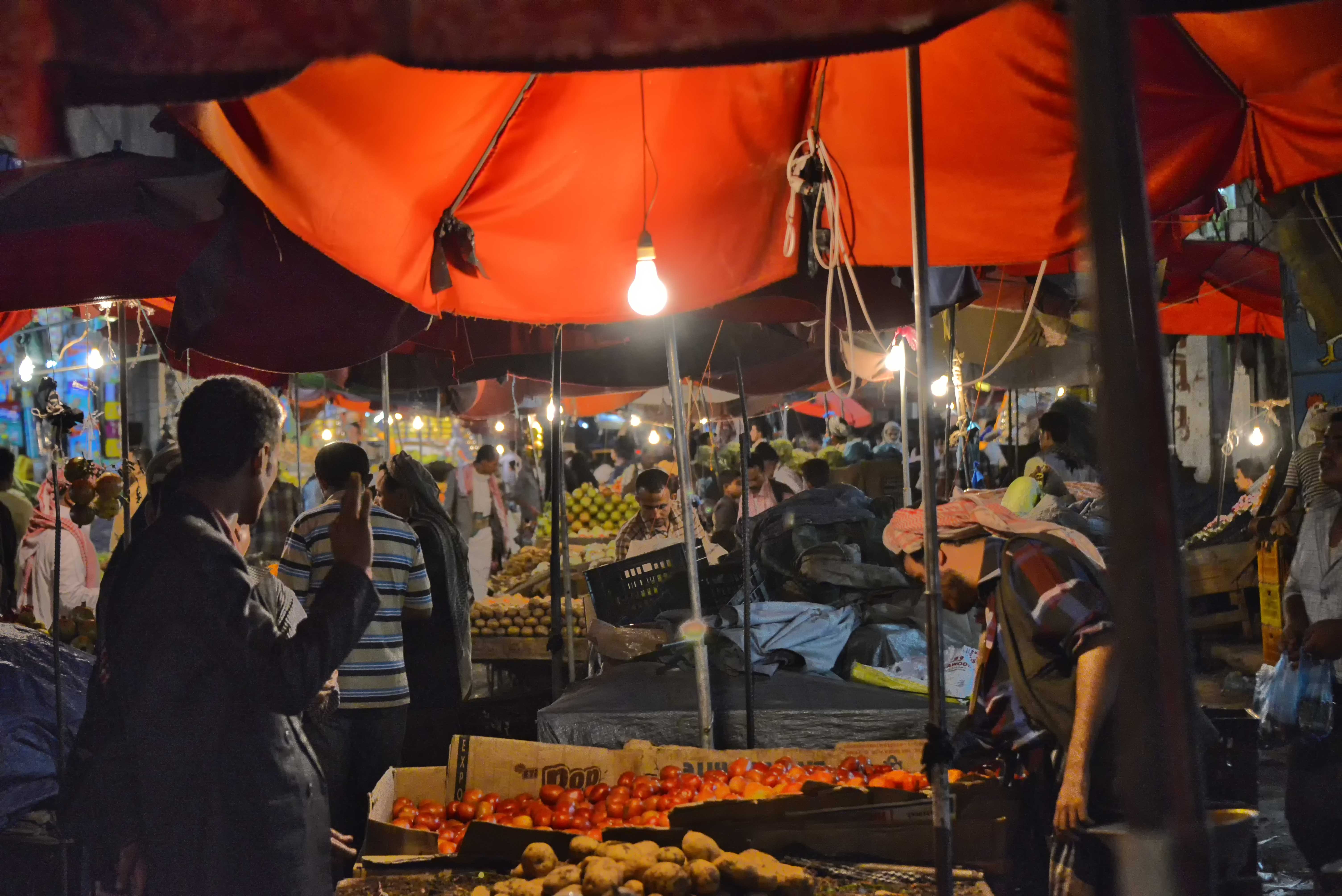Yemenis face the effects of weak currency

Al Hudaydah Market, Yemen, in 2013
Hailey Brown — Yemen was a place of war for nearly a decade, after the Houthis, a militant group, took control of Yemen’s capital city in 2014. Saudi Arabia protested the change in governance and led a military coalition supported by the United States. Since a truce in 2022, the Houthis now mainly control the country’s northern region. The war left Yemen in a poor economic and political state. Now, the Houthis have attacked ships in the Red Sea in protest of Israel’s attacks on Gaza, prompting the U.S. to bomb Yemen’s Houthi-controlled regions.
The near decade of war and recent uptick in conflict has radically changed Yemen’s sense of place, meaning their identity within the places they live. What was once a place bustling with lively markets and celebrations plentiful with food to break the fast during Ramadan, has become one where families lack access to nutritious food, and air conditioning. One man interviewed by the New York Times, Mohammed Abdullah Yousef, skips meals, can barely cover his bus fare to work, and can only afford to air condition one room. Another, Hussein Saeed Awadh, is unable to cover the cost of powdered milk for his daughter, whose teeth are breaking due to a lack of calcium. His salary as an Arabic teacher is only worth $35 a month. This poverty and food insecurity is a reality for 18.2 million of Yemen’s 35 million population, who face skyrocketing levels of inflation and increased conflict. The current situation worries one UNICEF representative, as the typical “hunger” season of summer and fall has yet to strike. The World Food Program ceased food distribution in areas controlled by the Houthis, leaving many Yemenis without stable access to food.
Scale can remind us why the situation in Yemen has grown so severe. Every geographic entity (city, state, or country) is connected. Political actions are not isolated to just one scale. The effects ripple through from the regional, to national, and local levels, and up again. So, bombings in one region of Yemen do not only impact the Houthis targeted, they impact Yemenis living throughout the country. Conflict compounding across many scales and years has created the reality Yemenis live in today.
Image source: Rod Waddington from Kergunyah, Australia, CC BY-SA 2.0

